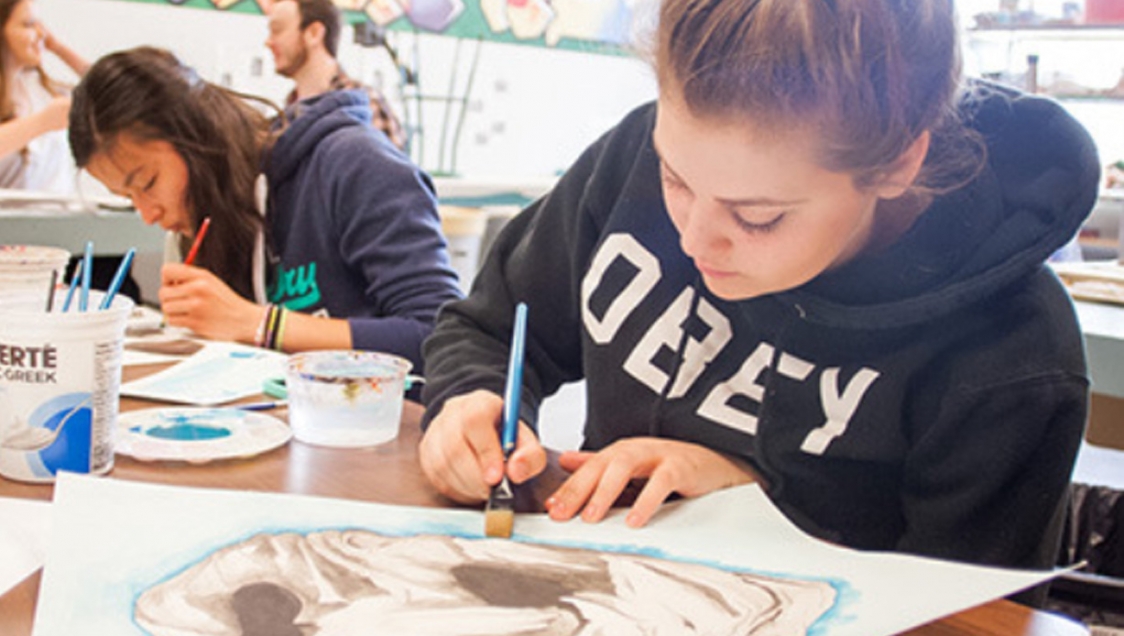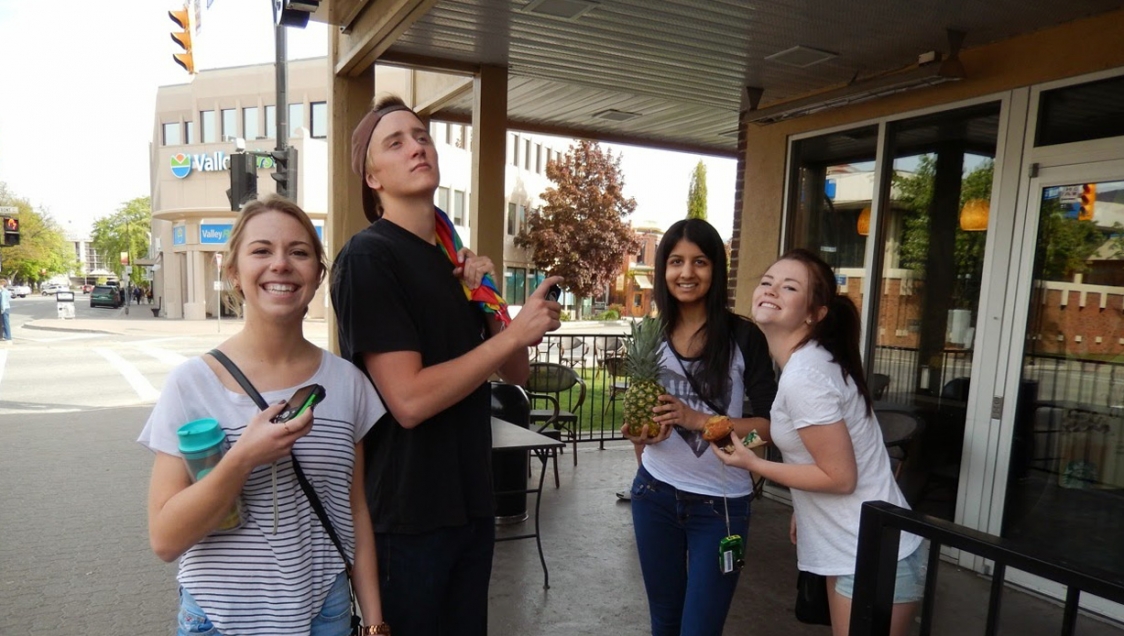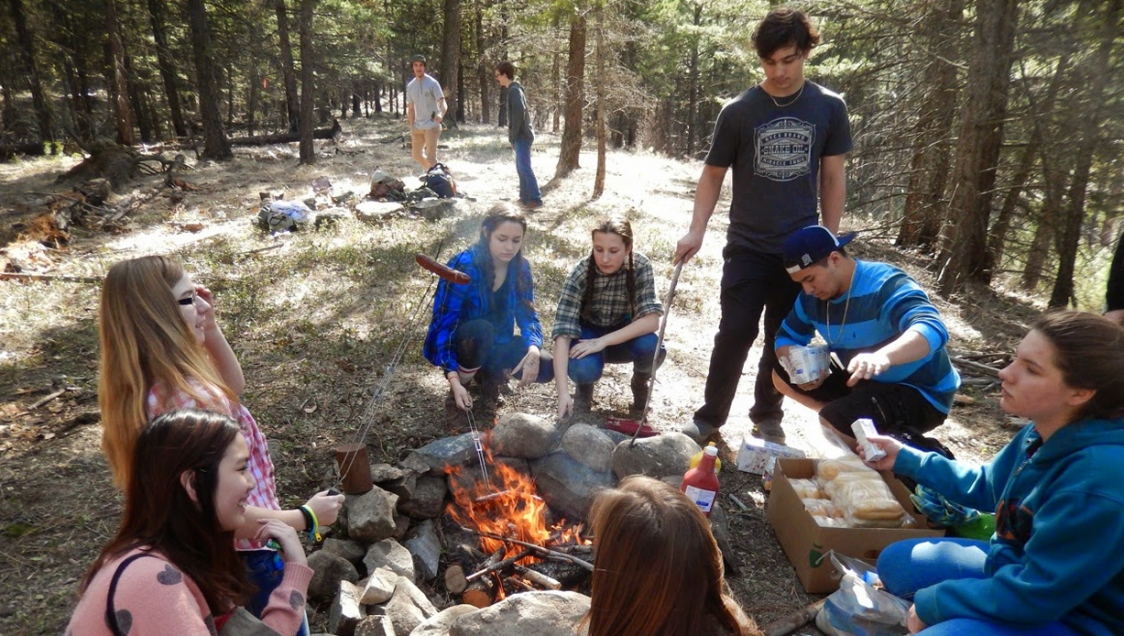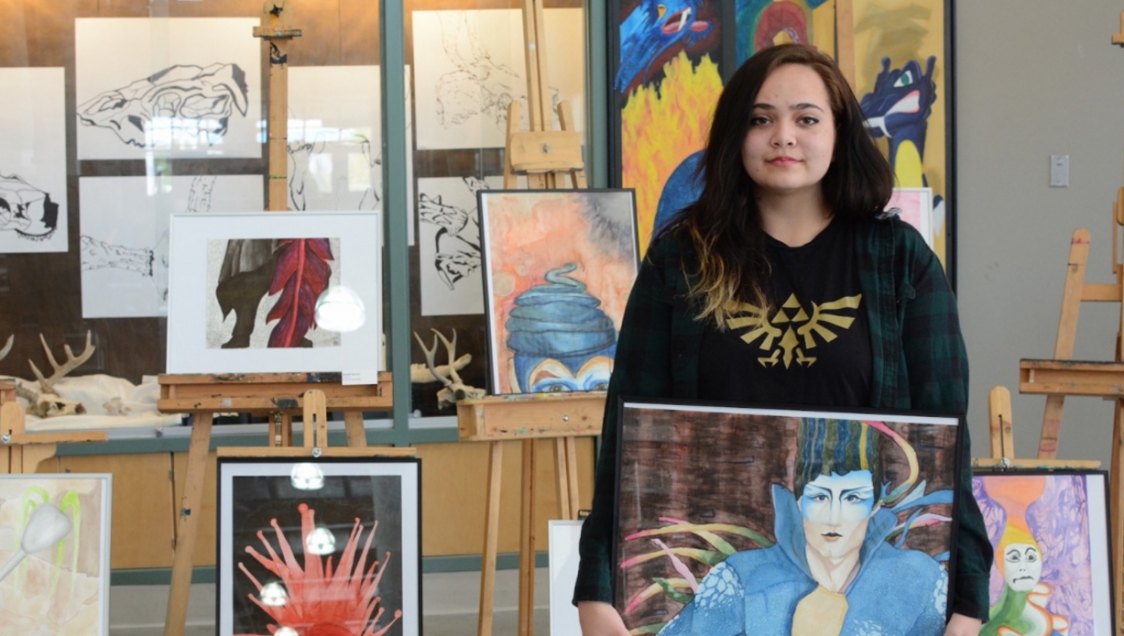



Through A Different Lens
Vulnerable students react better to modern teaching methods that focus on flexibility and a more “hands on” approach to learning. What began with in-class innovations in teaching and learning has developed into cross curricular and “outside” classroom experiences – in the natural environment, in the community, and in intergenerational settings.
In the Okanagan Skaha School District, graduation rates are lower for vulnerable groups of students compared to other youth, particularly for students of Aboriginal ancestry and those with behavioural challenges. The Through a Different Lens project encourages teachers to try new ideas and methods that are proven to engage students when traditional classroom activities fail. Adopting these techniques across new school districts will create opportunities to improve graduation rates and provide teachers with the chance to discover and share new practices.
Filming, building, creating, and becoming more inclusive
Vulnerable students are exposed to inequity in the education system through barriers to their learning that do not affect most students. But instead of removing individuals to special programs, the Through a Different Lens project helps mainstream teachers address their obstacles to learning.
teaching methods that were once considered innovative are now embedded in the learning culture of schools
The project asks teachers to shift from an over-reliance on traditional methods to creating programs where students can use their strengths to learn in alternative ways e.g. through technology, filming, creating, building, comics, interviews, etc. This reinvents how youth learn, how their achievements are recognized, how teachers assess learning activities, and values physical, emotional, intellectual and spiritual development in a way that creates an inclusive environment for Aboriginal students.
Teaching methods that were once considered innovative are now embedded in the learning culture of schools, and teachers are sharing their new practices with peers and vulnerable students. The program will continue to grow by connecting to other school districts, the Aboriginal partnership groups, the First People’s Principles of Learning , a New Aboriginal Enhancement Agreement , and the new B.C. curriculum . With a strong evaluation plan and partnerships in place, the program will reach more classrooms, and go even deeper in those already involved.
From failing tests to flying high
Through a Different Lens started with a small group of 30 teachers testing the project. Today almost 100 teachers are involved. So far the project has measured progress through over 100 case studies of vulnerable students, 1,200 pre-and-post involvement 1,200 surveys, and interviews with students.
“At the beginning of Biology 12, Sarah (not her real name) lacked any self-confidence about her ability to succeed in the course. She had an after-school job to support herself and her father who is on disability, and works late many nights. At the end of the first unit, Sarah failed her first test and wanted to drop out. Realizing that time was a huge factor for her, we discussed how to alter her assignment and test due dates. She didn’t know that this was possible.”
“Sarah worked consistently to perfect her knowledge on the quizzes before the unit tests, and she ended up getting a 90% in her final term. Sarah’s academic success showed me that for some students, school work is secondary to other commitments in their lives, and as a result traditional due dates are punitive.”
Through a Different Lens is creating more energized teachers; more hopeful, successful & resourceful students, and a significant and lasting shift in school culture based on advocating for at-risk students, strength based methods, and a positive approach to trying new methods.
Partners
University of British Columbia Okanagan, School District 53, Penticton Indian Band, BC Ministry of Education

